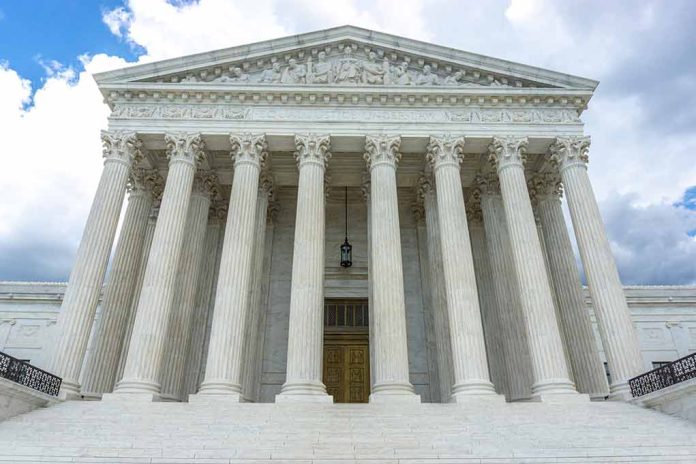
(USNewsBreak.com) – The Supreme Court has taken on hot-button issues ranging from affirmative action to abortion and gun rights over the past few years. Now, another prominent issue has come before the nation’s High Court. Justices heard a case centered on the Chevron doctrine, a principle deriving from the 1984 case Chevron USA, Inc. v. Natural Resources Defense Council, Inc. Some are speculating that this could be the next precedent the SCOTUS overturns.
What Is the Chevron Deference (Doctrine)?
The Chevron Deference, a principle of administrative law, compels federal courts to refer a matter to a federal agency’s interpretation when Congress delegates an unclear or ambiguous statute to the agency. Over the years, courts have applied the doctrine inconsistently — cases have cited the doctrine more than 80,000 times since the decision in the Chevron case — but courts have expressed a desire to abandon it entirely. Nevertheless, it remains a controversial subject.
Now, it’s before the High Court again.
2020 Regulation Challenged
On Wednesday, January 17, the Supreme Court heard two challenges to a 2020 regulation that requires herring fishermen to pay for the monitors that travel with them to oversee operations and collect data. The National Marine Fisheries Service established the program during the Trump Administration.
Federal observers are nothing new; they have traveled with fishing vessels for decades. But the Trump-era program mandated that the fishermen foot the bill, which can be extremely costly at more than $700 per day.
Attorneys arguing on the fishermen’s behalf likened paying for the monitors akin to town and city residents paying directly for police officers who enforce laws. According to CBS News, Meghan Lapp, liaison for Seabreeze, a fishery that operates two vessels, said the company had “no problem with taking the observers as required by Congress” but noted that “Congress did not require us to pay for them, and that is a huge distinction.”
Additionally, the company sent ships out on trips of 10 to 14 days where it could fish for other species. The company remained responsible for paying the monitors even if the vessel caught no herring, but it couldn’t troll for herring without the monitors, creating a conundrum.
The case went through several courts, all of which upheld the Chevron opinion. Now, the nation’s highest court will have a say in the matter. If it overturns the doctrine, it could place limits on federal powers.
Two cases center on the subject: Relentless v. Department of Commerce and Loper Bright Enterprises v. Raimondo. Observers expect a decision on both actions by June when the SCOTUS recesses for the summer.
Copyright 2024, USNewsBreak.com












